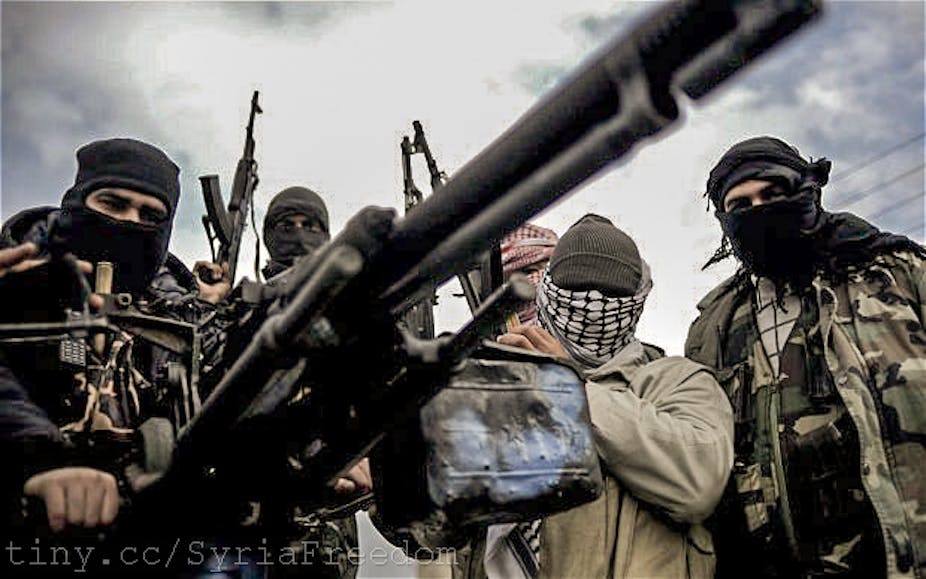With the UK and France free of their EU obligations to refrain from providing lethal assistance to the rebels and the US now deciding that the time has come strategically and politically to do so, all is set, right? Perhaps. Yet, there is just the one small matter of such action being unlawful.
International law prohibits states from intervening in the affairs of other states. Commenting upon and discussing situations in other states is not caught by this prohibition, but actions of a coercive nature are. The use of force is arguably the most obvious form of such coercion, whether manifested by direct intervention through the use of a state’s own military forces or indirectly through the provision of arms and training to opposition forces.
The only two established exceptions to the prohibition of the use of force in international law are actions taken in self-defence and those taken under the authorisation of the UN Security Council. In the context of the provision of arms to the opposition forces there is no prospect for a justification of self-defence, and there is simply no hope – as things stand – of gaining an authorisation by the UN Security Council, given the opposition of Russia and China, both of whom are permanent members of the Council and thus in the possession of the right to veto such a measure.
So the US, Britain and France will have to look elsewhere in legally justifying their arming of the rebels.
Guns to stop suffering?
The most obvious basis upon which states might try to legally justify such action is a right of unilateral humanitarian intervention. The problem with this is that no such right exists, with NATO’s military action in Kosovo in 1999 – the most recent precedent for the direct form of such action – widely regarded as “legitimate yet unlawful”.
In a similar tone, the US et al might suggest that their provision of military aid is lawful as support for a self-determination movement in Syria. Although during the decolonisation era of the 20th century there was arguably some support for the right of individuals to engage in an “armed struggle” in the realisation of self-determination, and the right (some might say obligation) of states to support them in their quest, there has been no support for the extension of this right to self-determination movements other than those fighting external colonisation and repression.
On the basis that the Assad regime is being provided with heavy weapons and sophisticated missile systems it might be argued that there is a right of “counter-intervention”, particularly in the context of a civil war where the right of the people to decide the fate of their country has been interfered with by outside support for the governmental regime.
However, there is virtually no support in the practice of states for such a legal right, and in the context of the Syrian civil war, while the provision of arms by Russia and Iran to the Assad regime has been condemned, it has not been condemned as a violation of international law.
A question of identity
In this sense, Western states could attempt to get over the legal hurdle in front of them by extending their existing recognition of Syrian rebels from “legitimate representatives of the Syrian people” to “transitional government of the Syrian people”. But it’s possible that has not been considered an option given not only that their unity and identity is questionable at best but that recognition of the rebels as the government of Syria at this stage would be premature and consequently unlawful.
There are several voices, including the International Commission of Inquiry in Syria and the UN secretary-general, declaring that there can be no military solution to the conflict, and instead urging a diplomatic and peaceful one.
The conference in Geneva which has been pencilled in for July, and which has been primarily backed by the US and Russia, looked the most immediate and brightest prospect for such an outcome. The US announcement on Friday, seen in light of Russia’s persistent claim that any provision of arms to the opposition forces would constitute a violation of international law, make the chances of this happening rather bleak.

